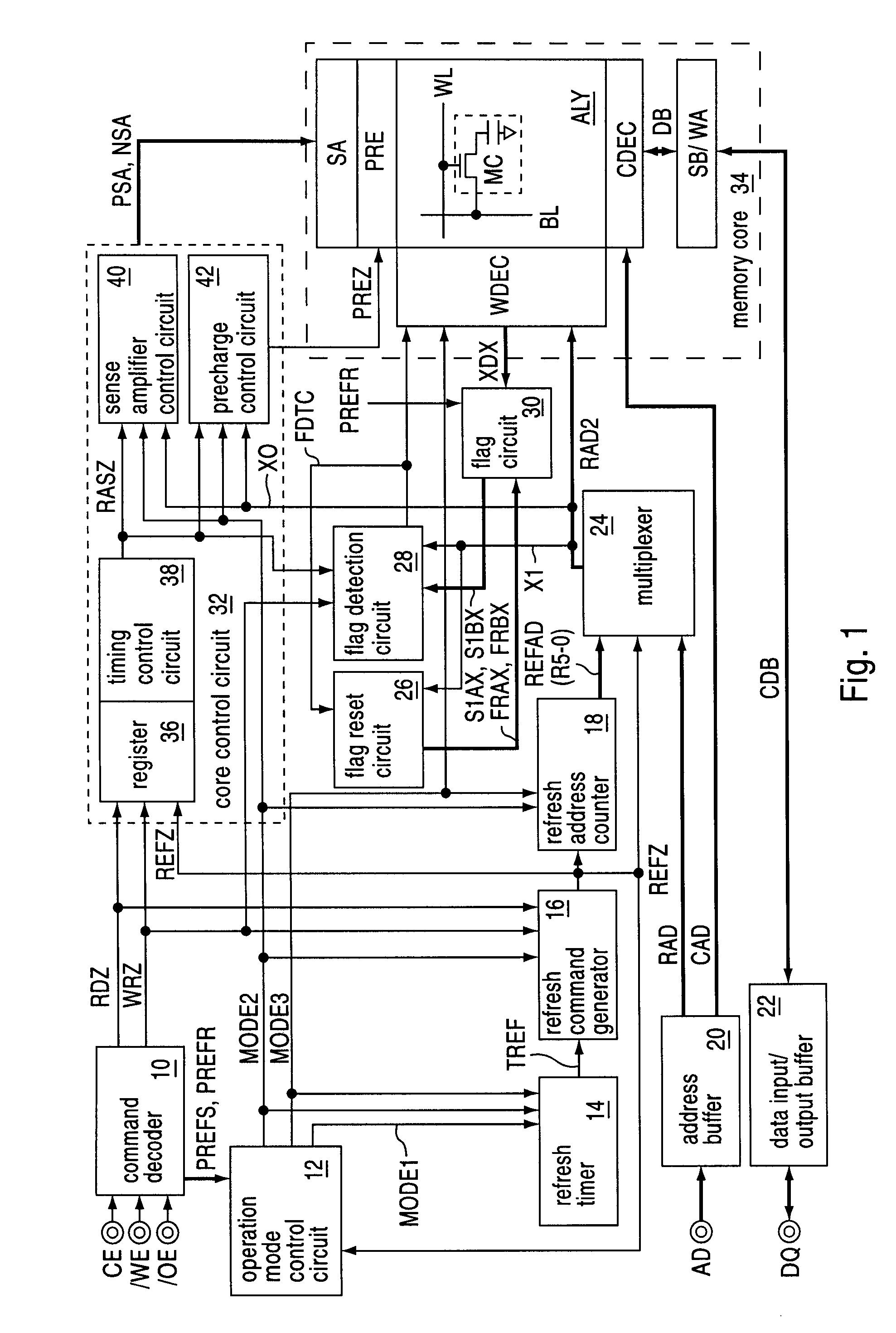Semiconductor memory with single cell and twin cell refreshing
a technology of memory and memory cells, applied in the field of memory of semiconductors, can solve the problems of consuming battery and reducing the number of memory cells to be refreshed, and achieve the effects of simple control, efficient change, and high speed
- Summary
- Abstract
- Description
- Claims
- Application Information
AI Technical Summary
Benefits of technology
Problems solved by technology
Method used
Image
Examples
first embodiment
[0071]FIG. 1 shows the semiconductor memory of the present invention. This semiconductor memory is formed as a pseudo SRAM having DRAM memory cells and SRAM interfaces by using a CMOS technology. The pseudo SRAM periodically executes a refresh operation inside a chip to retain data written to memory cells without receiving any external refresh command. This pseudo SRAM is used as, for example, a work memory mounted on a cellular phone.
[0072]The pseudo SRAM has a command decoder 10, an operation mode control circuit 12, a refresh timer 14, a refresh command generator 16, a refresh address counter 18, an address buffer 20, a data input / output buffer 22, a multiplexer 24, a flag reset circuit 26, a flag detection circuit 28, a flag circuit 30 (flag set circuit), a core control circuit 32, and a memory core 34. The operation mode control circuit 12 and the core control circuit 32 operate as control circuits executing operations in a first and a second memory mode, which will be describe...
second embodiment
[0242]FIG. 41 shows operations during a normal operation mode in the
[0243]In the normal operation mode, similarly to the first embodiment (FIG. 20), the word lines SW0P, SW1, SW3, SW4 are independently selected according to a row address signal RAD2. Then, in response to an external read command or write command, a read operation or a write operation is executed. A refresh operation is executed in response to a refresh command internally generated in the pseudo SRAM.
[0244]FIG. 42 shows operations during a common refresh mode in the second embodiment.
[0245]In the common refresh mode, data retained in the partial memory cell C00 is first latched in the sense amplifier SA (FIG. 42(a)). Next, while the sense amplifier SA is kept activated, the common memory cells C10, C20, C30 are sequentially accessed and the data latched in the sense amplifier SA (complementary data) is written to these memory cells C10, C20, C30 (FIG. 42(b, c, d)). Consequently, the complementary data are retained in...
PUM
 Login to View More
Login to View More Abstract
Description
Claims
Application Information
 Login to View More
Login to View More - R&D
- Intellectual Property
- Life Sciences
- Materials
- Tech Scout
- Unparalleled Data Quality
- Higher Quality Content
- 60% Fewer Hallucinations
Browse by: Latest US Patents, China's latest patents, Technical Efficacy Thesaurus, Application Domain, Technology Topic, Popular Technical Reports.
© 2025 PatSnap. All rights reserved.Legal|Privacy policy|Modern Slavery Act Transparency Statement|Sitemap|About US| Contact US: help@patsnap.com



